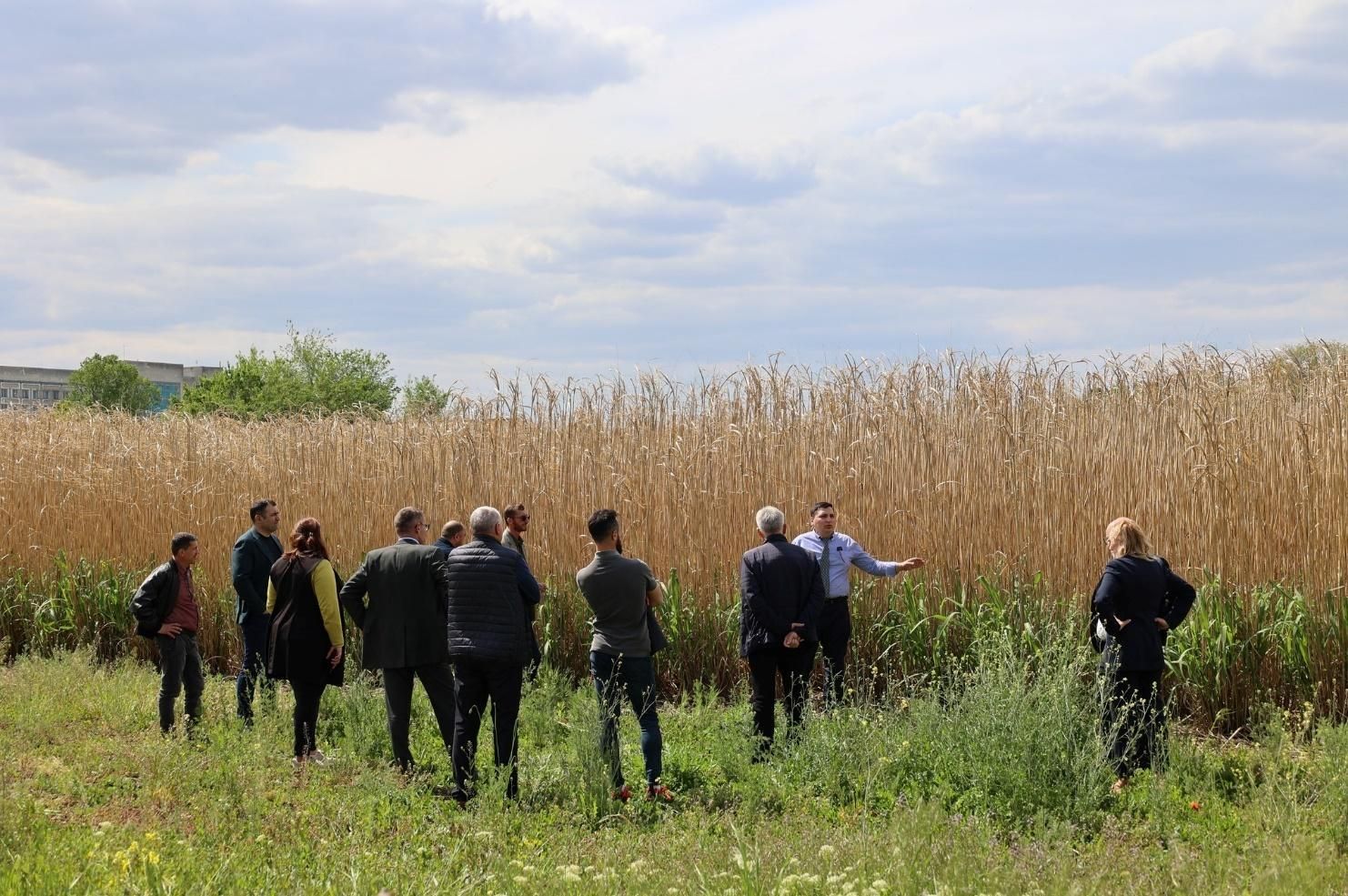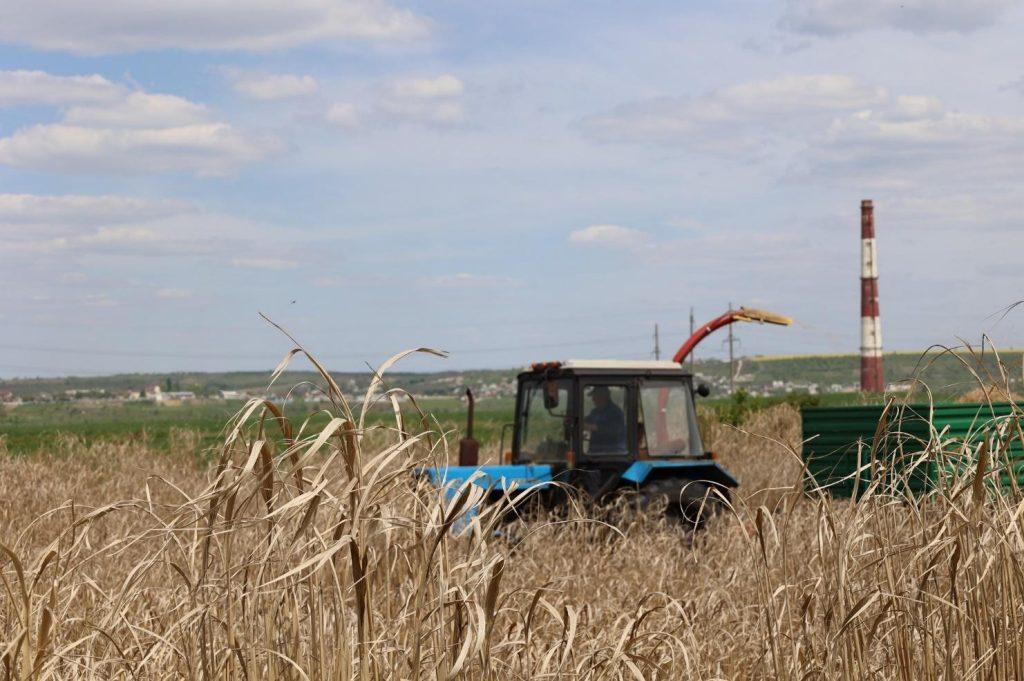
Noi soluții de energie regenerabilă promovate prin Convenția Primarilor
Semnatarii Convenției Primarilor pentru Energie și Climă sunt în căutare de soluții inovatoare de energie regenerabilă. Una dintre practicile deosebite care le-a atras atenția este cultivarea plantei Miscanthus, care este nu doar un biocombustibil pentru producerea energiei termice, ci și ajută la remedierea solurilor contaminate.
Institutul de Genetică, Fiziologie și Protecție a Plantelor din Chișinău a fost în fruntea acestui efort. În 2019, au lansat un proiect-pilot în colaborare cu Termoelectrica și o companie britanică, având scopul de a evalua potențialul plantei Miscanthus în condițiile R. Moldova. Pe terenul experimental de două hectare planta și-a demonstrate adaptabilitatea sa la condițiile climatice și solului local. Încurajați de rezultatele pozitive, în 2020 a fost construită o centrală termică pe bază de biomasă, cu o capacitate de 150 kW.
Vitalie Mîța, Directorul pentru Dezvoltare la Termoelectrica, și-a exprimat planurile ambițioase pentru viitor, declarând: „Suntem hotărâți să înființăm propriile noastre plantații de culturi energetice și să diversificăm sursele noastre de producție a energiei termice. Miscanthus s-a dovedit a fi o resursă valoroasă în exploatarea potențialului energetic local.”
Beneficiile oferite de Miscanthus au captat, de asemenea, atenția semnatarilor Convenției Primarilor, care au vizitat plantația și au aflat avantajele acestei plante. Primarii și autoritățile publice locale, aflați în etapa de implementare a Planurilor locale de acțiune în domeniul energiei și climei, s-au inspirat pentru soluții inovatoare de energie regenerabilă.
Irina Plis, expertă națională în proiectul UE Convenția Primarilor-Est, a subliniat importanța noilor soluții, afirmând: „Deși mulți primari au inclus proiecte de energie regenerabilă în planurile lor, provocarea constă în punerea în practică a acestor proiecte. Angajamentul voluntar asumat prin Convenția Primarilor este reducerea consumului de energie la nivel local cu minim 30% până în 2030, iar acum este momentul de a traduce angajamentele în acțiuni”.
Primarii s-au arătat entuziasmați de potențialul plantei Miscanthus. Igor Hîncu, primarul satului Volontir, a evidențiat beneficiile ecologice, afirmând că implementarea acestei metode i-ar ajuta să abordeze multiple probleme de mediu, inclusive criza energetică.
Miscanthus, o planta perenă originară din Asia, oferă numeroase avantaje. Reproducerea sa prin rizomi elimină necesitatea producției de semințe, iar odată plantată, rămâne în sol timp de până la 25 de ani, necesitând costuri anuale minime. De asemenea, Miscanthus demonstrează adaptabilitate la solurile nepotrivite pentru alte culturi și contribuie la captarea carbonului și regenerarea solului.

Vizita la plantația de Miscanthus a încheiat două zile de instruire dedicate implementării Planurilor Locale de Acțiune privind Energia Durabilă și Clima (pe domeniul utilizării SER), organizate de proiectul UE Convenția Primarilor Est.
Pe durata trainingului 25 de reprezentanți ai APL au aflat despre aspectele tehnice ale proiectelor din domeniul surselor de energie regenerabilă (SER) și cu cele mai bune practici disponibile, pentru a utiliza corect resursele la etapele de planificare și implementare. De asemenea, despre oportunitățile de finanțare oferite de diverse surse, inclusiv Uniunea Europeană prin intermediul Convenției Primarilor – Proiecte demonstrative. Evenimentul a beneficiat, la deschidere, de prezența Ministrului Energiei, Victor Parlicov, a lui Solomon Ioannou, Ofițer de programe în cadrul Delegației Uniunii Europene în Republica Moldova, precum și a lui Christophe Frering, lider regional al proiectului CoM East III.


